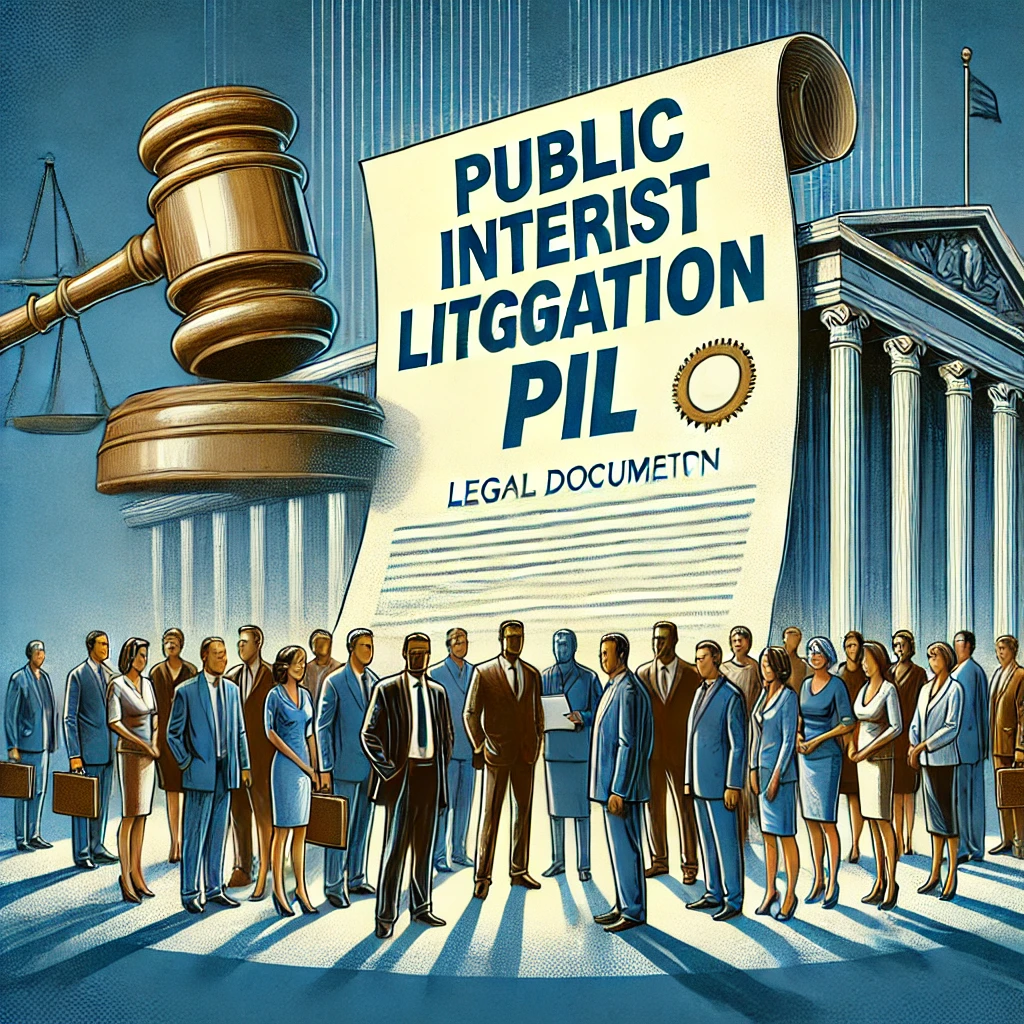Public Interest Litigation (PIL)

Definition:
Public Interest Litigation (PIL) is a legal mechanism that allows individuals, groups, or non-governmental organizations (NGOs) to file a case in a court of law for the protection of public interest, especially when the rights of a larger section of society are affected. It is an essential tool for social justice and judicial activism.
Key Features of PIL:
- Locus Standi Relaxation: Traditionally, only an aggrieved party could approach the court. PIL allows any concerned citizen to file a case on behalf of those unable to do so.
- Objective: The primary aim is to protect fundamental rights, ensure social justice, and uphold constitutional values.
- Judicial Activism: PILs enable courts to intervene in matters concerning corruption, environment, human rights, and governance.
- Flexibility in Procedure: PILs can be filed through a simple letter or petition, making them more accessible.
Who Can File a PIL?
- Any public-spirited person or organization.
- NGOs, activists, journalists, or individuals acting for the welfare of the disadvantaged.
Where Can a PIL Be Filed?
- Supreme Court of India (under Article 32 of the Constitution).
- High Courts (under Article 226 of the Constitution).
- District Courts (in some cases).
Common Issues Addressed by PILs:
- Environmental Protection (e.g., pollution, deforestation, waste management).
- Human Rights Violations (e.g., custodial violence, bonded labor, refugee rights).
- Governance and Corruption (e.g., mismanagement of public funds, election fraud).
- Consumer Rights and Public Health (e.g., food adulteration, medical negligence).
Landmark PIL Cases in India:
- Hussainara Khatoon v. State of Bihar (1979): Led to reforms in the legal rights of undertrial prisoners.
- MC Mehta v. Union of India (1986): Strengthened environmental laws (e.g., banning hazardous industries in populated areas).
- Vishaka v. State of Rajasthan (1997): Led to guidelines against sexual harassment at the workplace.
- People’s Union for Democratic Rights v. Union of India (1982): Strengthened labor rights.
Misuse and Criticism of PILs:
- Frivolous PILs: Some petitions are filed for publicity or personal interest rather than public good.
- Judicial Overreach: Courts sometimes interfere in policy matters, which is traditionally the legislature's domain.
- Delay in Justice: Large numbers of PILs can overburden courts, delaying other important cases.
Conclusion:
Public Interest Litigation is a powerful tool for social justice and democratic accountability. However, it should be used responsibly to avoid frivolous litigation and ensure that it serves the genuine interests of society.